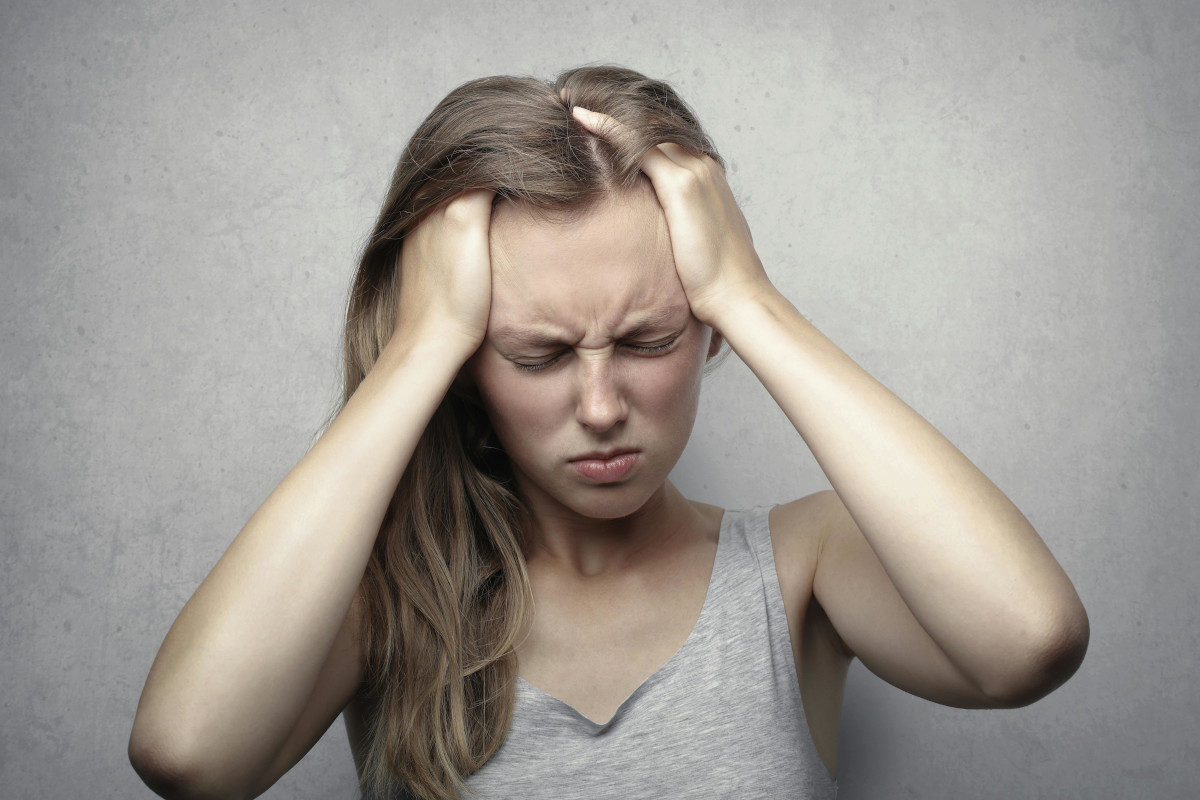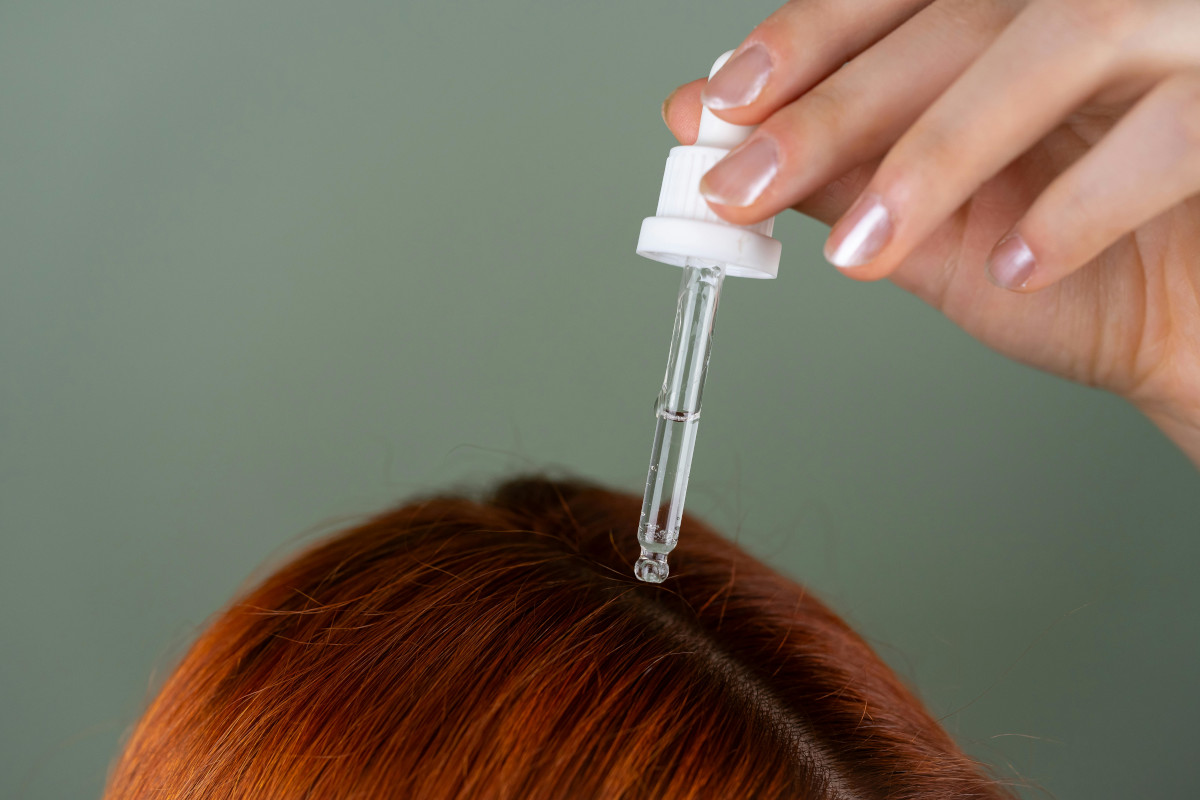No products in the cart.
Dry scalp
Article authored by Frida Olsson
Dry scalp: Causes and natural treatments
Dry scalp is something many of us experience at least once in our lives. It can be frustrating with itching, flaking and discomfort – and it can be hard to know where to start. So what causes dry scalp and what can you do to treat or prevent it gently and naturally? Here, I’ll guide you through what you need to know and share practical tips that are both effective and environmentally friendly.
What is dry scalp?
In a nutshell, dry scalp means that the skin on your scalp has too little moisture. It often leads to symptoms like:
Itching
Scaling (easily confused with dandruff)
Clearing
Tightness or a general feeling of discomfort
For some, it is a temporary problem, while others may find that it comes back time and time again (or never goes away). To tackle dry scalp properly, we need to understand why it happens and what is actually happening in the skin.
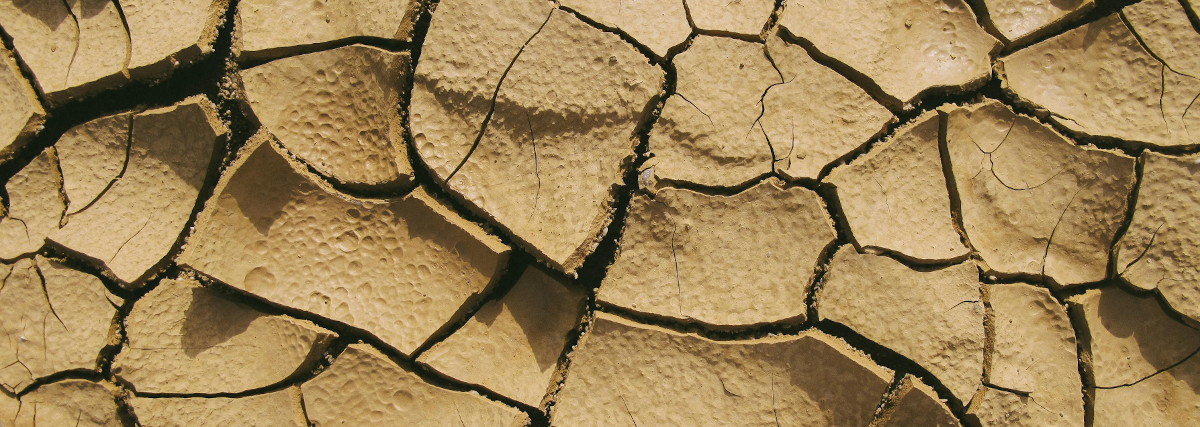
Why does your scalp get dry? Common causes
Dry scalp can be caused by a range of factors – often a combination of external influences and internal health. The most most common causes include:
1. environmental factors
Cold and dry weather: Winter air with low humidity literally sucks the moisture out of the skin (abeing a Northerner is tough).
The impact of the sun: UV rays damage the skin’s protective barrier and make it easier for the scalp to dry out.
Dry indoor air: Heaters and air conditioning also contribute to drying out the skin. Optimal humidity in the home is between 40-60% and let me tell you, it’s common in Sweden to have below 40% humidity in the home during the winter, especially if you don’t actively do anything to regulate it.
2. Hygiene habits
Excessive hair washing: Washing your hair too often, especially with strong shampoos, dramatically reduces the natural oils of the scalp.
Hot water: Heat dries out the skin, so rinsing with hot water does more harm than good. You may have heard that you need hot water to dissolve the dirt in your hair, but the fact is that the water doesn’t need to be hotter than lukewarm to do just that.
Wrong products: Shampoos and styling products that contain alcohol, sulfates or synthetic fragrances irritater and dry out the skin.
3. Biological and health-related factors
Ageing: The skin’s natural ability to retain moisture decreases with age.
Nutritional deficiencies: Lack of fatty acids, vitamin E, D or enough water can affect skin health. Most often, dry scalp is the body’s way of telling you that you have an ongoing imbalance inside.
Stress: Prolonged stress disturbs the skin’s balance and makes it drier.
Skin problems: Eczema, psoriasis and seborrheic eczema are some medical conditions that can cause dry scalp.
What happens on the scalp on a biological level?
Your scalp acts as a protective barrier, which not only keeps moisture in but also protects against harmful substances from outside. When your scalp becomes dry, it is often because:
The skin barrier is weakened: Damage to the lipid layer allows water to evaporate from the skin more easily.
Increased cell renewal: When skin is irritated, it can react by producing more skin cells, which can cause flaking.
Inflammation: Dryness can lead to microscopic inflammation, which worsens symptoms and makes the skin more sensitive.

How to avoid dry scalp
Preventing dry scalp is all about protecting the skin’s natural barrier and giving it the right conditions to stay healthy. Here are some simple and practical tips to prevent dry scalp:
1. Adapt your hygiene practices
Wash your hair no more than 2-3 times a week and avoid strong shampoos.
Use lukewarm water, and feel free to finish with a short cold rinse to close the scales of the hair.
Switch to sulfate-free and mild products adapted for sensitive scalps.
2. Protect against the elements
Wear a hat during cold months.
Avoid too much sun by wearing a hat or staying in the shade.
3. reduce stress
Daily walks, meditation or just taking a break every now and then can do wonders for your skin and your well-being. Skin and hair problems often stem from the body being in a constant state of stress – something that is very common in our modern society. We live in a world built around a stressful pace, where performance and constant activity are rewarded. This lifestyle has a negative impact on our bodies, not least on our skin and hair, which are sensitive to prolonged stress.
4. Give your body the right nutrition
To give your scalp and hair the best conditions to thrive, it is important that your body is properly nourished. There are a bunch of essential vitamins and minerals that can do wonders for your scalp health. You can either aim to get these through a varied diet or you can try Hairforce – a complete supplement with a powerful formula of everything your scalp needs to thrive.
MSM (methylsulfonylmethane)
MSM is a natural source of organic sulphur, an important building block for body tissues such as cartilage, tendons, skin, hair and nails. It is helps to reduce inflammation and improve the quality of both hair and nails. MSM is also known to relieve problems such as dry and itchy skin, eczema and even hair loss.Each daily dose of Hairforce contains 1.28 grams of MSM, which is an optimal amount to support scalp and hair health.
Rosemary
Rosemary has amazing anti-inflammatory properties that helps improve microcirculation on the scalp, which in turn improves oxygenation and nutrition.
Hairforce contains 250 mg of organic rosemary extract from France per daily dose – a high quality concentrate that makes a big difference.Zinc
Zincis a real hero when it comes to skin and hair health. It plays a crucial role in maintaining healthy skin and scalp. Zinc deficiency can cause skin problems such as eczema, acne and slow wound healing, and as much as 20% of the body’s zinc is actually found in the skin! Unfortunately, zinc deficiency is common because it is one of the substances that the body has the most difficulty absorbing, especially in the case of problems such as gluten intolerance or other intestinal disorders. Phytic acid found in whole grains, nuts and beans can also inhibit the body’s absorption of zinc.Hairforce contains 15 mg of amino acid-bound zinc per daily dose – zinc in the form that is best absorbed.
Vitamin B(complex), selenium, iodine and magnesium
A complete B vitamin complex is particularly important as it contains all eight water-soluble B vitamins, which together help to strengthen hair, improve its quality and promote healthy growth. For example, biotin (B7) helps strengthen hair strands, while pantothenic acid (B5) helps moisturize and protect the scalp from dehydration.Minerals such as selenium and magnesium complement this effect by balancing the body’s functions and creating an optimal environment for hair and scalp to thrive.
With Hairforce, you get all this in a perfectly balanced daily dose, carefully formulated to give your scalp (and hair) exactly what it needs to thrive.
Since 2016, Hairforce has been helping people improve their hair and scalp health. Many customers testify to how Hairforce balances the scalp – dry scalp becomes less dry, while oily scalp becomes less oily. Discover the difference for yourself, click here to read more about Hairforce.
Key considerations for a healthy scalp
Whether you choose to focus on getting all the essential vitamins and minerals through a varied diet or through a convenient supplement like Hairforce, there is one thing you absolutely must not forget: water intake. To maintain your skin’s moisture balance, it’s important to drink enough water – preferably around two liters a day. Water not only helps your skin to stay hydrated, but also helps to support all the body’s essential functions.
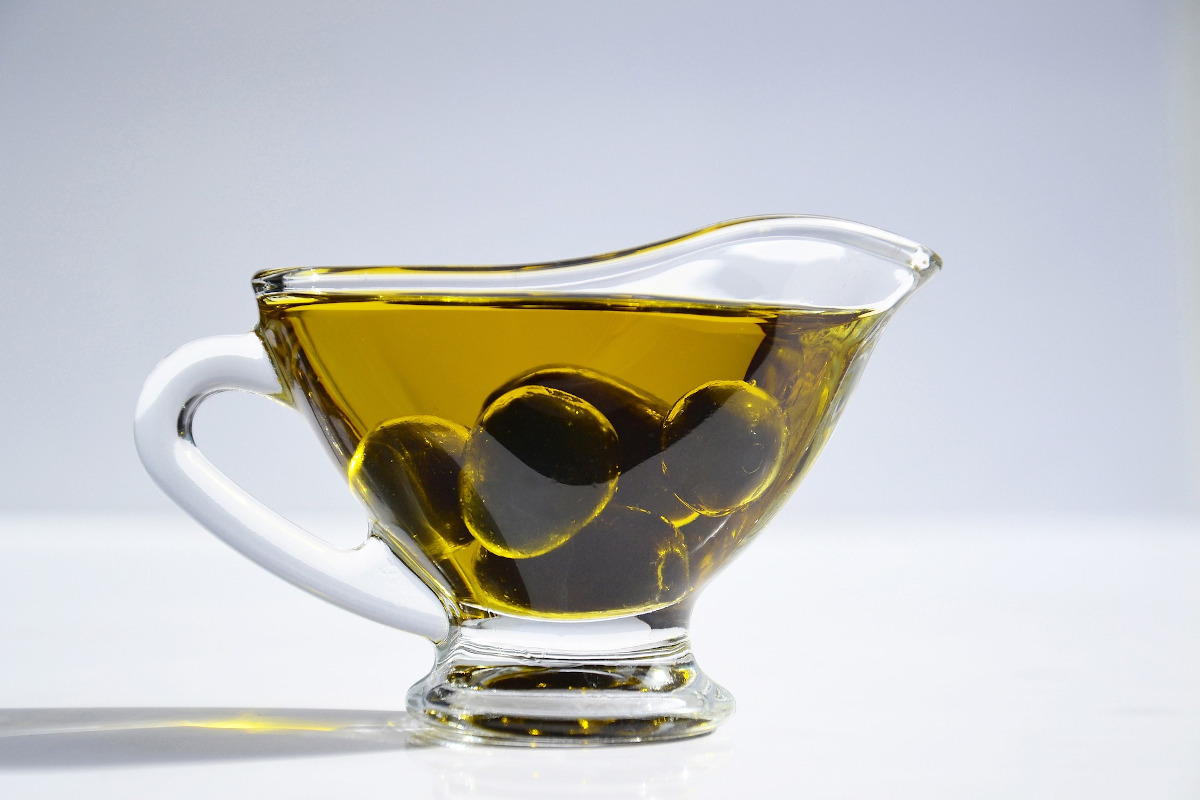
Moisture and balance with healthy fats
In addition to water, high-quality fats are one of the keys to soft and healthy skin. Essential fatty acids such as GLA (gamma linolenic acid) are particularly beneficial for dry skin. GLA helps to reduce inflammation, strengthen the skin’s protective barrier and improve the skin’s ability to retain moisture. You can find GLA naturally in evening primrose oil, turmeric oil and blackcurrant seeds, and it’s also available as convenient supplements in capsule form.
To get good fatty acids, you can also aim to include oily fish, flaxseed oil and high-quality olive oil in your diet. Another great option is ArcticMed, an omega-3 supplement that combines fish oil with polyphenol-rich olive oil for maximum effect. This blend provides the body with essential omega-3 fatty acids that support both skin health and inflammation in the body. You can find it here.
Give new life to skin and scalp with vitamin A
Vitamin A is also an important building block for healthy skin. It contributes to cell renewal, improves skin texture and helps maintain moisture balance. For those who experience recurring problems with dry skin, a vitamin A treatment may be worth trying. Retinyl palmitate is a form of vitamin A that does not need to be converted before it is absorbed by the body, helping to facilitate absorption. Here is a high-quality alternative if this appeals to you to try.
However, keep in mind that vitamin A should be used in moderate doses and as part of a regimen, rather than a long-term daily treatment. After a course of treatment, a maintenance dose may be a good option if you notice good results. Consult an expert if you are unsure whether vitamin A is the right choice for you.
Natural treatments for dry scalp
If your scalp is already dry, try these natural and moisturizing treatments:
1. Oil treatments
Jojoba oil: Similar to the body’s natural sebum and easily absorbed, making it ideal for dry scalp.
Argan oil: A lighter oil that absorbs quickly and helps restore moisture balance.
Coconut oil: Deeply moisturizest, soothes irritation and reduces flaking.
Feel free to heat the oil you choose to use, as this will help it penetrate deeper into the scalp. Gently massage the oil in with your fingertips, let it work i 20-30 minutes or overnight for deeper moisturization. Then wash the u r thoroughly with a mild shampoo.
2. Aloe vera
Aloe vera has natural anti-inflammatory and moisturizing properties. Apply pure aloe vera gel to the scalp and let work for for 20 minutes before rinsing thoroughly.
3. pH balancing
Keeping your scalp’s pH balance in check is important to reduce problems with dryness and flaking. Here are two simple ways:
Rose water spray: Spray rose water on your scalp every time you washed or rinsed hair. Water can affect the natural pH of the scalp and rose water helps to restore the balance while having a calming effect.
Apple cider vinegar: Mix 1 tbsp of organic and unfiltered apple cider vinegar with 2 dl of water and pour it on your scalp while showering. Massage it in a little gently. Leave on for 1-2 minutes before rinsing thoroughly with cold water.
4. Oat mask
Mal ecological oatmeal to a fine powder (or buy organic oatmeal) and mix with water until it becomes a loose pasta. Moisten your hair and apply i scalp. Lfor thet work for 20 minutes to soothe irritation and moisturize the skin. Feel free to add some honey to the mix – it is extra moisturizing and has antibacterial properties.
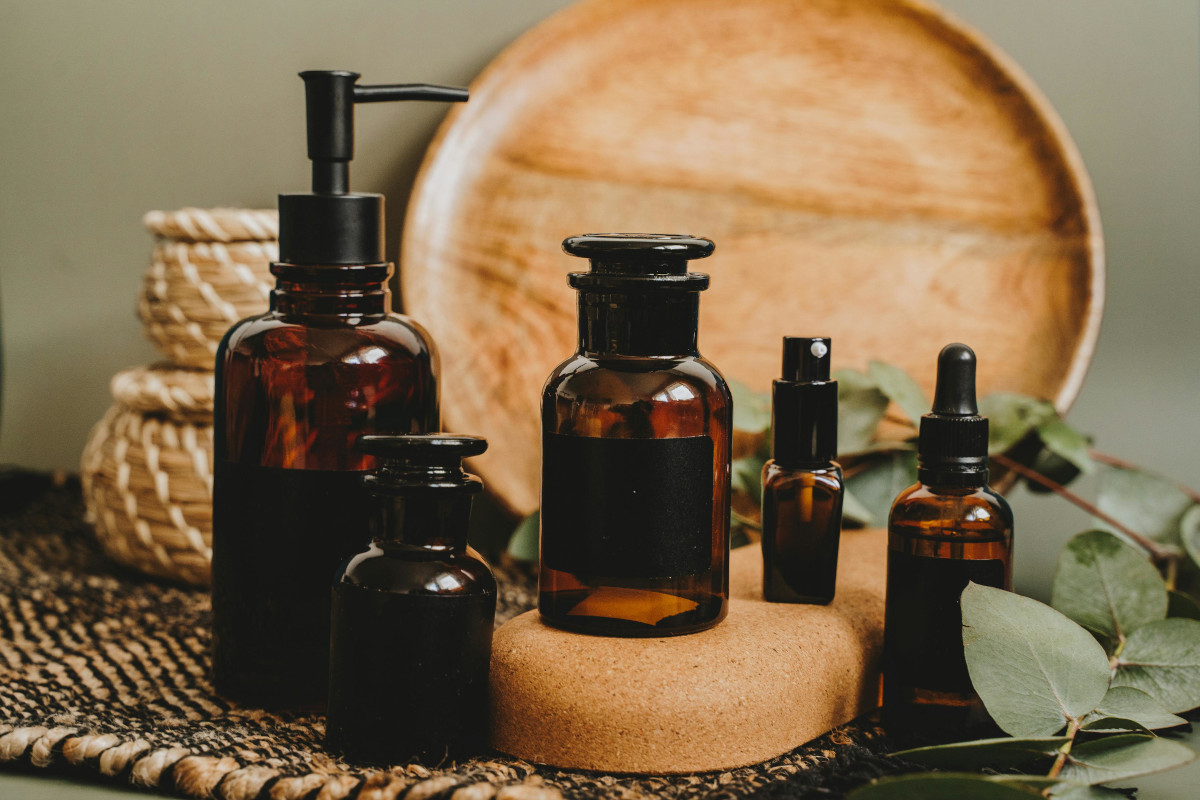
Adapt the treatment to your hair type
When treating dry scalp, it is important to consider your hair type, as different hair types react differently to different treatments and products. Here are some guidelines on how to adapt your choices depending on your hair type:
1. thick and coarse hair
Thicker hair tends to be drier because the natural oils from the scalp have more difficulty spreading along the hair strands. This means that oil-based treatments, such as coconut oil or argan oil, are particularly effective. Leave the oil on for longer, preferably overnight, to provide both hair and scalp with intense hydration.
2. thin and fine hair
Fine hair can easily become flat and greasy from heavy products. It’s better to opt for lighter treatments, such as aloe vera or apple cider vinegar, which moisturize the scalp without weighing down the hair. If you use oils, apply them sparingly and wash thoroughly to avoid making your hair look greasy.
3. curly or wavy hair
Curly hair is often drier due to its texture, which means that moisture and oils do not spread as easily. Treatments that combine moisture and nourishment, such as a honey mask or a leave-in treatment with argan oil, can be particularly beneficial.
When should you seek help?
If problems persist or you experience severe symptoms such as cracks, sores or intense itching – consult a homeopath or dermatologist (depending on your preference). In many cases, the root cause is internal and the symptoms we get are our body’s way of signaling to us that we have an imbalance to address.
Do you have a dry scalp? It’s important to both treat your scalp and nourish your hair. Read more about scalp problems and solutions to get help or try products that strengthen your scalp and hair.
Executive summary
Dry scalp is annoying, but with the right care and a few simple adjustments to your routine, you can regain a balanced and healthy scalp. By combining natural treatments with good habits, you’ll give your skin and hair the best possible conditions to thrive. And remember: the outside reflects the inside.

